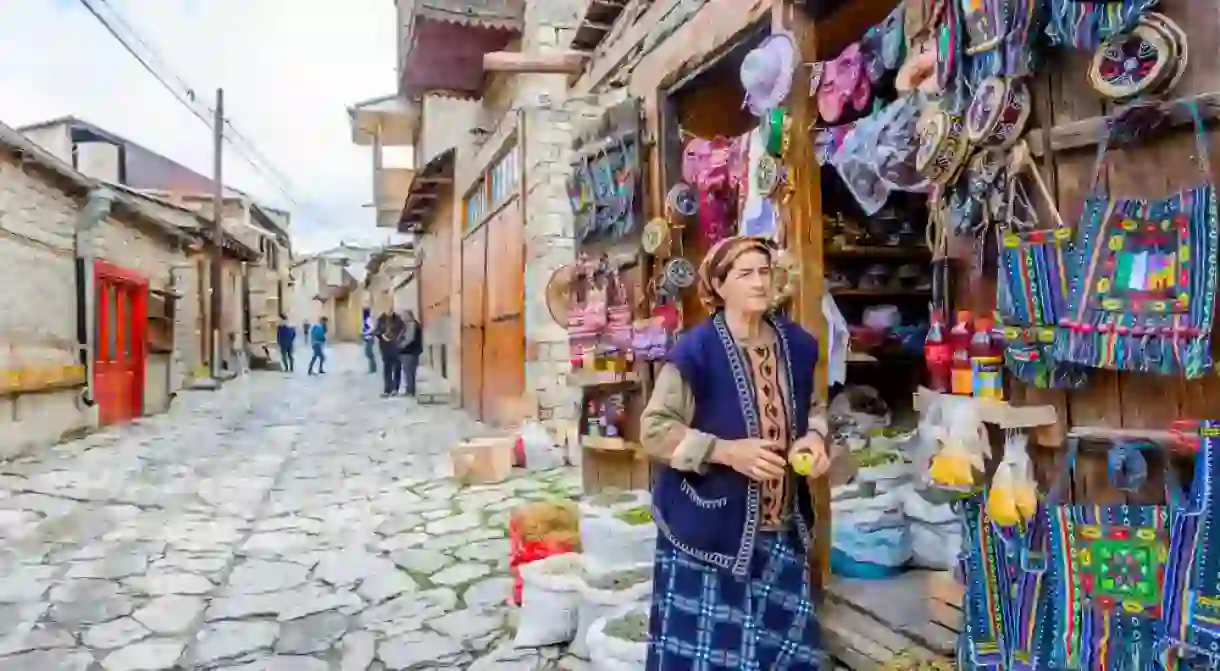11 Things You Should Know About Azerbaijani Culture

Azerbaijan culture combines the historical, religious and traditional evolving and moulding over centuries to create the modern-day Azerbaijani. Some traits may be familiar and others foreign and contradictory, but this is what makes the country special. Embrace the following quirks, and immerse yourself in the culture and traditions of Azerbaijan.
Tolerance
Azerbaijan follows Shia Islam, the same as neighbouring Iran. Nothing unusual here. But, they consider Sunni Turkey to be their brothers. The country has good relationships with Israel, something unheard of in the Islamic world. And that’s not all. After centuries of influence from Russia, many Azerbaijanis tend to be pro-Russian. The same people are pro-Western too. In short, Azerbaijan culture seems to have a tantalising blend of the best of everything.

The Language
The official language is Azerbaijani, which belongs to the Turkic family of languages. The vast majority of residents speak Russian as a second language with some viewing it as the language of culture, in the same way that fluency in French represents a certain air of elegance in Europe. Younger Azerbaijanis are beginning to learn English.
Traditional Tea Culture
One of the striking parts of Azerbaijan culture is the tea drinking rituals. Tea is almost sacred. The brightly coloured drink gets poured into a pear-shaped glass called an armuda, served without milk. A cube of sugar accompanies, and then locals take a bite before sipping the tea. The reason behind this quirky style dates back to medieval times when paranoid rulers were afraid of assassination by poison. Apparently, the sugar reacts to the toxin when dipped into the tea.

Unparalleled Hospitality
Visit Azerbaijan, and experience some of the world’s best hospitality. Locals go to great lengths to help, and guests are a valued commodity. Stay in a homestay, and hosts treat guests with endless cups (or armuda) of tea, snacks and anything else. Ask for directions, and they might show rather than tell. The younger ones who speak some English are often happy to chat about their country. Giving good hospitality is deeply ingrained in Azerbaijani culture.

Contrasting Personalities
Not everyone has a polite and helpful mindset, after being part of the Russian Empire and the Soviet Union. A few decades ago, those in higher positions liked to flaunt their power. Today Azerbaijan has a minority who still have the old views and a Soviet mentality. An example of this might be someone who shouts at tourists who are taking photographs near a monument, which he or she perceives to be disrespectful. Old habits die hard.
Girl Power
A positive legacy of almost two centuries of Russian rule is the way men respect women. Men give their seat on the bus, insist on paying and hold doors open. In 1918, Azerbaijan became one the first countries to give women the right to vote — the first in the Islamic world. Women also hold high positions in government and serve in the military.
Traditional Society
Despite the liberal appearance of this secular, post-Soviet nation in the Caucasus, tradition remains vital in Azerbaijani culture. Outside of the capital, Baku, locals still live a rural lifestyle. Many grow fruit and vegetables in plots and often live in modest houses. The communities in the Caucasus Mountains have rich traditions dating back thousands of years.

Don’t Say the Name Armenia
The relationship between Azerbaijan and Armenia is like Israel and the Middle East. They have been engaged in conflict since 1988 over the disputed Nagorno-Karabakh region. Even saying the name evokes suspicion and raises eyebrows. Hundreds of thousands of Azerbaijani refugees were forced out of their villages in the Karabakh a generation ago. People are still bitter. Tensions run deep. Ceasefires are regularly ignored.
Azerbaijan’s Relationship with Oil
Oil stimulated Baku’s boom in the late 19th century, funding most of the elegant architecture, mansions and palaces in modern Baku. The second oil boom saw the nation’s wealth hit the roof. The black gold funded Baku’s skyline. Oil was also the culprit behind why the value of manats almost halved against the US dollar as oil prices plummeted in 2015.
The relationship is complex. Many younger Azerbaijanis aspire to work in the petroleum industry. Others despise how the country’s wealth funded Baku’s opulence rather than developing rural infrastructure. In Naftalan, 50 kilometres (31 miles) from Ganja in Central Azerbaijan, spas offer a strange type of therapy: bathing in crude oil.

Azerbaijan’s Relationship with Fire
Fire symbolises Azerbaijan. From Baku’s Flame Towers to Zoroastrian fire temples and burning water, infernos have deep ties to Azerbaijan culture. Scientifically, the vast quantities of subterranean gas are responsible. Culturally, fire gave light and was mystical to the early inhabitants.

Cultural Diversity
Not only is the ‘Land of Fire’ varied in landscapes featuring 75% of the world’s climatic zones, Azerbaijan culture is just as diverse. From early Zoroastrians and Islamic influences to more recent Orthodox Christians and ancient communities of Caucasus Jews, a melange of religions exist today. Combine this with each region having their own traditions, food and style of carpet weaving. Also factor in influences from Iran, Turkey, Russia and more recently, the West, and Azerbaijan culture has an intriguing appeal.














